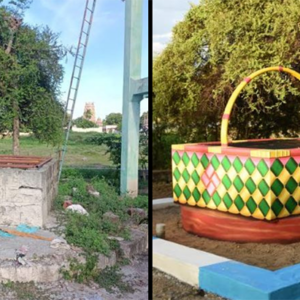
In a bid to clean up the oceans, small-time fishermen in Indonesia are being paid as partial cleanup crews for the ever-growing issue of pollution in the seas. The archipelago is attempting to tidy their waters, while raising awareness among stakeholders as well.
On October 4, the Ministry of Marine Affairs and Fisheries in Indonesia announced that they put aside around 1 billion rupiah – which is approximately $70,000 – which they will use to pay fisherman for any plastic trash they retrieve from the oceans.
Indonesia isn’t the only country attempting to lessen the immense trash piling up in their nearby waters. Many other countries across the globe have been setting their own climate goals in the hopes to become more respectful of the environment. When it comes to ocean waste, one of the biggest contributors is plastic trash and Indonesia wants to reverse their reputation as one of the biggest causes of that exact problem. Their plan is to spend $1 billion within the next three years to decrease the amount of plastic that enters the oceans from the country’s shores by at least 70%.
For Indonesian fishermen that work off the main islands with the ability to collect 4 kilograms (2.2 pounds) of trash per day, the government will give them around $10 for their trash collection. Notably, this amount is a bit more than what they would earn if they spent their whole day catching fish to sell at the usual market prices.
Fisheries minister, Sakti Wahyu Trenggono, said in the press conference held in Jakarta, “This activity is very simple. But at least this will raise awareness among the stakeholders at sea and the people around the world.”
Sakti added, “The most important thing is prevention. If we can properly conduct prevention, then there shouldn’t be any waste in the sea. Because once the trash gets to the sea, then it’s already damaged.”
Economically-speaking, Indonesia’s location is in one of the quickest-developing regions on the planet. This is a huge reason why the use of plastic waste has widely outpaced any form of recycling infrastructure, more so on the smaller islands of the country.
The UK’s Pew Trust explains that ‘95% of all fishing activities are small-scale.’ As a result, these small fisheries cannot cover the costs from things like ocean pollution or other additional taxes the way that large-scale fisheries can. This is why such a bottom-up approach as what they are taking to clean up the oceans is highly suitable to Indonesia.
Moreover, Indonesia happens to be an island surrounded by incredible underwater wildlife that divers and snorkelers love to visit, and the last thing they want to deal with is tons of plastic and waste. This plan is one step further at keeping the country beautiful and tourist-worthy for years to come.
What are your thoughts? Please comment below and share this news!
True Activist / Report a typo


